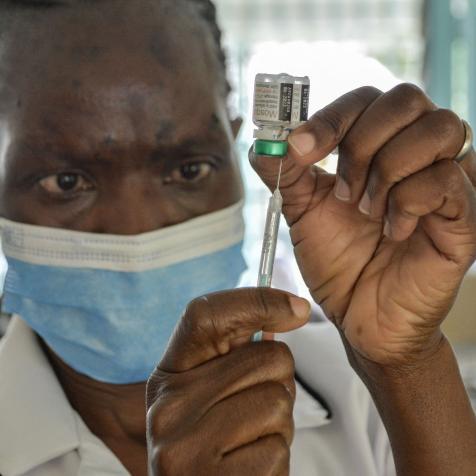
Wikimedia Commons
Alexander Fleming's Accidental Discovery Of Penicillin
By:
Ashley Hamer
His poor cleaning habit leads to an amazing moment.
August 01, 2019
Alexander Fleming, a professor of Bacteriology at St. Mary's Hospital in London, didn't do a great job of cleaning his laboratory before heading out on vacation in 1928. When Fleming came back, he began cleaning the petri dishes on which he was experimenting with bacteria. On one dish, however, he found a mold growth. In the area around the mold growth, there was no bacteria. There was bacteria in other parts of the petri dish, but the mold was sitting in an area alone. Fleming had a "eureka!" moment, as he had just accidentally discovered an antibiotic. Learn more about his world-changing discovery with the videos below.
This article first appeared on Curiosity.com.
Next Up
We Have Liftoff: Congratulations to NASA and SpaceX
Here's to NASA, SpaceX, Astronauts Bob Behnken and Doug Hurley, and all of the engineers, scientists, and staff involved with the Saturday, May 30th historical launch.
World's First Malaria Vaccine Offers Hope to Millions
Tens of thousands of lives could be saved each year from sickness and death caused by malaria following the World Health Organization (WHO) approval of a first-ever vaccine. Scientists have recommended the RTS,S vaccine for children in sub-Saharan Africa and other high-risk areas to prevent one of the world’s oldest and deadliest infectious diseases.
Where should we go? The Moon or Mars?
There’s been a lot of excitement around space exploration recently. Astrophysicist Paul M. Sutter discusses the viability between the Moon and Mars.
Following Blue Origin’s NS-12 Rocket Launch
Blue Origin, Billionaire Jeff Bezos’ spaceflight company, is rescheduled to launch its NS-12 reusable spacecraft on Wednesday, December 11. Watch it LIVE.
What are the Chances of Life Appearing On…Earth?
Just how lucky are we on Earth? What were the chances that life would arise, let alone lead to intelligence?
Why We'll (Probably) Never Be Able to Teleport
For many of us, teleportation would be the absolute best way to travel. Imagine just stepping into a transporter and being able to go thousands of miles in nearly an instant.
Celebrating Hubble's 30 Year Legacy
Three cheers for the Hubble! First launched in 1990 aboard the Space Shuttle Discovery, the storied space telescope is celebrating is thirtieth year in lonely orbit around the Earth.
Survival Chemistry: The Ingredients for Life on Earth
Oxygen, hydrogen, carbon, and a few other elements from the periodic table make up 99% of our bodies.
The Kuiper Belt: When Solar Systems Dance
Pluto isn't alone after all. Besides being the home of Pluto, the Kuiper belt hosts dwarf planets, and smaller bits of rock and ice.
Get Celestial with Lowell Observatory LIVE!
Our friends at Lowell Observatory are serving up our solar system on a platter live!


















